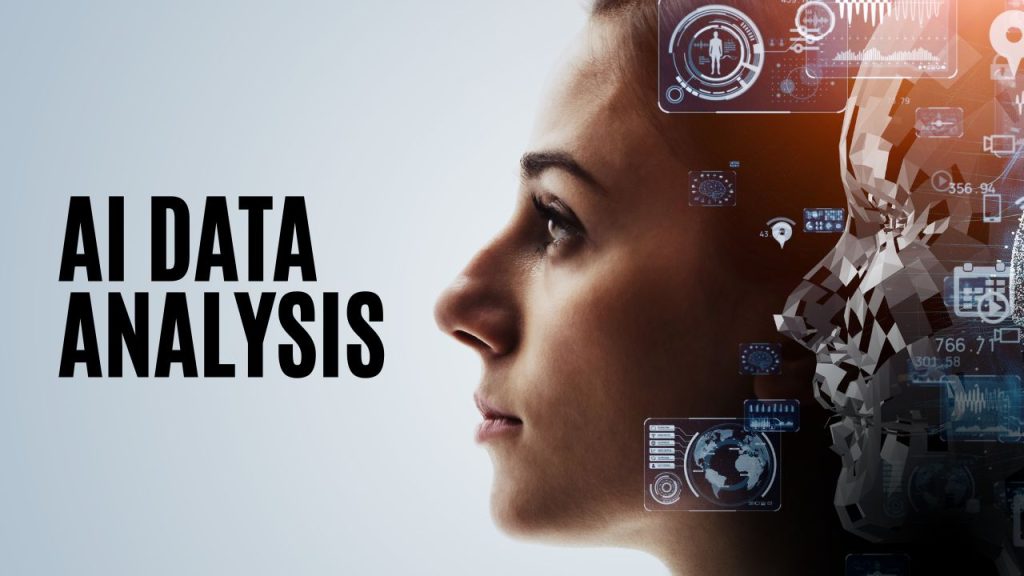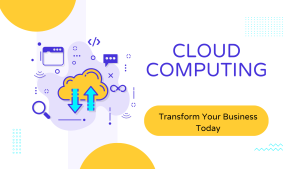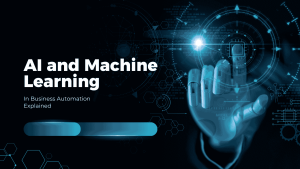In today’s data-driven world, businesses have to make sense of an enormous amount of information to stay ahead of their competitors. The traditional methods of Business Intelligence (BI) workflows are proving insufficient for managing the avalanche of data flooding organizations every day. Enter Artificial Intelligence (AI), which has revolutionized BI workflows and enabled companies to extract insights from vast amounts of data in real-time.
In this blog, we will discuss how AI is transforming Business Intelligence workflows, its implications for BI operations and decision-making, the advantages of using AI in BI, and real-world success stories that demonstrate the power of AI in BI. We will also explore the role of NLP Querying and Composability in future BI architectures and tech innovations leading the way in AI-Driven BI. Read on to learn how AI-powered Business Intelligence is shaping the future of business decision-making!
How AI is Revolutionizing Business Intelligence Workflows
Incorporating artificial intelligence into BI workflows has drastically changed the game. Using machine learning algorithms that continuously learn and improve accuracy over time, businesses can now make data-driven decisions with confidence.
Leveraging AI-powered predictive analytics provides a competitive advantage in forecasting and planning. Real-time insights from interactive dashboards have revolutionized business processes across various use cases.
Natural language processing (NLP) techniques also enable stakeholders to extract deeper insights from vast amounts of unstructured data.
Real-time Analytics and its Implications for BI
Real-time analytics in BI is a game-changer using AI-powered data analysis. It enables businesses to make faster data-driven decisions that result in a competitive advantage.
By analyzing big data with AI-powered tools, businesses gain valuable insights for informed decision-making. Self-service analytics and predictive analytics further enhance functionality by enabling stakeholders to gain deeper insights into historical datasets for actionable insights. This provides an edge over traditional BI tools where raw data was not accessible so easily.
Self-service Analytics: Empowering Business Users with AI
Empower your business users with self-service analytics powered by AI. With this innovative tool, you can access and analyze large amounts of data without relying on IT or data analysts.
Get valuable insights from historical and real-time data using AI-powered algorithms. Make informed decisions quickly and accurately with self-service analytics. The future of BI lies in the use of AI-powered analytics techniques for self-service BI.
Using AI to automate BI dashboard creation and maintenance
Automating BI dashboard creation and maintenance using AI is revolutionizing how businesses handle their data analytics. This technology allows companies to process large amounts of data in real-time with the help of machine learning algorithms.
By automating these processes, businesses can save time and resources while also obtaining valuable insights that were previously impossible to get through traditional BI tools. This use case of artificial intelligence in business intelligence enables stakeholders to make better-informed decisions with deeper insights into their datasets.
ML-driven insights for Healthcare Analytics
With the use of machine learning algorithms, healthcare providers can now analyze large amounts of data to identify patterns and make informed decisions.
Along with the assistance of artificial intelligence-powered tools, healthcare professionals can predict future health issues and intervene early to prevent them. Real-time analytics provides valuable insights into patient data which improves patient outcomes.
AI-driven Workflow Optimization in BI Operations
Workflow optimization through AI is the future of Business Intelligence. Businesses can analyze large amounts of data accurately by reducing errors and automating repetitive tasks efficiently. Real-time analytics gives valuable insights into data trends while identifying patterns in big datasets.
With AI use cases growing rapidly across different sectors, such as healthcare and supply chain management, the potential for deeper insights grows exponentially. Letting stakeholders make informed decisions based on real-time data gives companies a competitive advantage in today’s business environment.
The Future of BI: AI Transformation
AI is transforming the future of business intelligence (BI) by automating repetitive tasks with machine learning algorithms. Predictive analytics enables businesses to plan better and gain a competitive advantage with actionable insights.
AI-powered BI tools free up valuable resources for more strategic analysis, leading to informed data-driven decisions for stakeholders. Through predictive analytics techniques, businesses can leverage automation and efficiency to achieve deeper insights into their big data.
Algorithmic Trends in Business Intelligence
Advanced analytics techniques and machine learning algorithms are driving algorithmic trends in business intelligence. Businesses can use natural language processing (NLP) to make BI more accessible to stakeholders for better decision-making.
With the use of modern tools such as self-service BI and predictive analytics, businesses can gain a competitive advantage and make informed decisions based on valuable insights derived from large amounts of data. As AI technology continues to evolve with real-time insights and automated workflows, the future of business intelligence looks promising.
Reinventing Data Visualization in the Age of AI
As businesses seek deeper insights into their large amounts of data, AI-powered BI tools are playing an increasingly significant role in delivering value. Reinventing data visualization with real-time insights and predictive analytics is one of the many functionalities that these tools offer.
Interactive dashboards allow for the exploration of raw data without relying on traditional BI tools, while automation takes care of routine tasks like cleaning and preparation. Unlock the full potential of AI-driven BI requires robust data security protocols to protect valuable business information.
Advantages of using AI in Business Intelligence
Businesses can leverage artificial intelligence (AI) to gain a competitive edge with real-time insights into their operations.
AI-powered business intelligence (BI) tools use machine learning algorithms to quickly analyze large datasets, providing actionable insights that support data-driven decisions. This functionality frees up data scientists to focus on more strategic work while ensuring efficient workflows.
Additionally, self-service analytics empower stakeholders across the organization to access and understand key metrics without relying on traditional BI tools.
Enhanced Data Security with AI-driven BI
Data security in the age of AI-powered BI tools is rapidly evolving, thanks to their ability to detect and prevent potential breaches. With algorithms that analyze large amounts of data, such tools can identify patterns indicating a security threat and suggest immediate action. Apart from this, they can also detect anomalies in the data that may go unnoticed by human analysts.
Moreover, these tools assist businesses in complying with regulatory requirements related to data privacy and security standards while reducing the possibility of human errors caused by breaches.
Impact of AI on Business Operations and Decision-Making
Business Intelligence (BI) has evolved with AI-powered Data Analysis. Self-service analytics, predictive analytics, and automation bring valuable insights to help stakeholders make informed decisions. Real-time analytics allow businesses to optimize processes for maximum profitability while enhancing data security.
With automated tasks like data cleaning and detecting patterns often missed by human analysts, BI tools can provide deeper insights into large amounts of data resulting in better decision-making.
Real-world examples of AI-powered BI success stories
The power of Artificial Intelligence (AI) in Business Intelligence (BI) cannot be overstated. With AI-powered BI tools, businesses can unlock valuable insights from large volumes of data that were previously untapped.
Successful implementation of these tools is exemplified by Netflix’s personalized recommendations and Amazon’s product suggestions.
By automating data analysis using machine learning algorithms and predictive analytics, businesses gain a competitive edge with faster and more accurate decision-making than traditional BI tools allow.
Additionally, identifying patterns and anomalies invisible to humans enables businesses to make data-driven decisions based on actionable insights.
How AI is Transforming Retail Analytics
Retail analytics is being transformed with the help of artificial intelligence (AI). Businesses can personalize their marketing strategies by analyzing customer behavior and preferences and gain a competitive advantage.
Automation of inventory management using AI can reduce waste and improve efficiency. Real-time data analysis leads to quick identification of market trends. AI-powered retail analytics provides valuable insights for informed business decisions.
Revolutionizing Supply Chain Management with AI Analytics
AI analytics has transformed the way businesses manage their supply chains. By analyzing datasets from different sources using machine learning algorithms, businesses can make informed decisions on inventory, logistics, and distribution. These insights are available in real-time, and help companies respond to market changes swiftly.
Walmart is one such company that has leveraged the power of AI to optimize its trucking routes and reduce fuel consumption. As a result, they have achieved significant cost savings while maintaining customer satisfaction levels.
The Growing Significance of AI in Financial Analytics
As the amount of financial data generated continues to grow, businesses are realizing the growing significance of using artificial intelligence (AI) in financial analytics. With the ability to analyze large amounts of data quickly and accurately, machine learning algorithms can identify patterns and anomalies in financial data that could easily go unnoticed by humans. This helps stakeholders make informed decisions based on valuable insights provided by AI-driven business analytics. In addition, automation through self-service bi tools and predictive analytics allows for improved functionality and deeper insights into business processes.
NLP Querying and Business Intelligence
Queries that used to require expertise in data science can now be made by non-technical users with NLP (Natural Language Processing).
Data analysis processes are automated, saving time and resources while enabling quick answers to complex questions. The increasing adoption of NLP in business intelligence ensures competitiveness in a data-driven world.
The Role of Composability in Future BI Architectures
Composability plays a crucial role in future BI architectures, particularly when handling large and complex datasets required for AI, machine learning, and predictive analytics. By integrating new data sources or analytics tools into the composability-based BI architecture, businesses can gain valuable insights to make informed decisions that provide a competitive advantage.
Additionally, it allows stakeholders to handle big data with ease while empowering them with self-service analytics and dashboard functionality. The importance of composability in future BI architectures cannot be understated as it remains central to the future of business intelligence.
Tech Innovations Leading the Way in AI-Driven BI
The future of business intelligence lies in using cutting-edge technologies such as artificial intelligence (AI), which enables businesses to process large amounts of data faster, more accurately, and with deeper insights.
Machine learning algorithms, predictive analytics, natural language processing (NLP), and real-time analytics are some of the tech innovations leading the way in AI-driven BI.
By automating workflows, delivering self-service analytics, and enabling real-time insights, these technologies provide businesses with valuable metrics that inform decision-making. With the deployment of AI-driven BI tools comes a new era of functionality that helps stakeholders make informed decisions based on historical data.
Conclusion
AI-driven data analysis is transforming the way businesses operate in the world of Business Intelligence. With real-time analytics, self-service analytics, and ML-driven insights, businesses can now make better-informed decisions and optimize their operations like never before. AI-powered BI also offers enhanced data security and has a significant impact on business operations and decision-making.
Get In Touch
Ready to take your business intelligence to the next level with AI data analysis? Our AI development services can help you unlock the full potential of your data. Get in touch with us today to learn how we can assist you.



